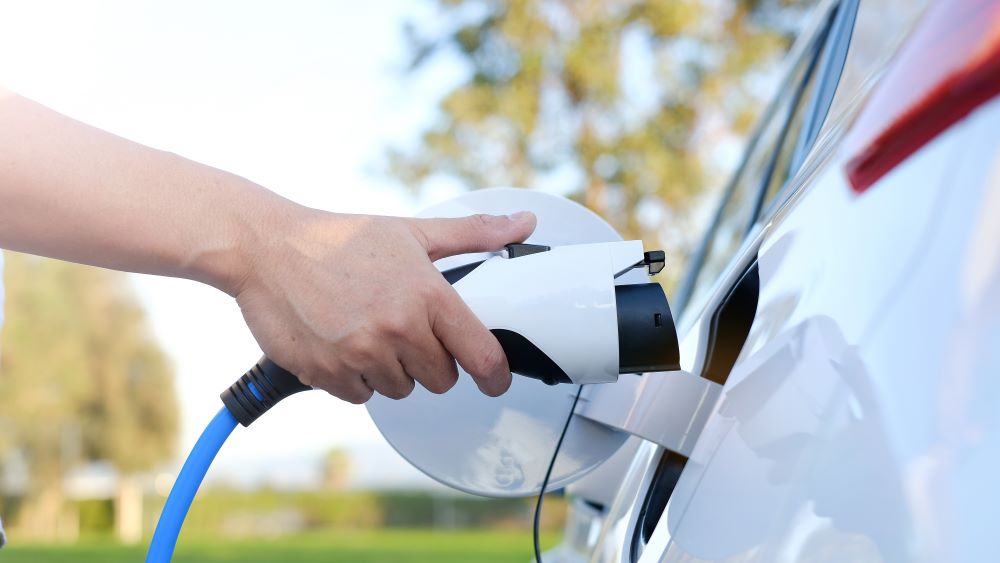
September 7, 2022

The recently passed Inflation Reduction Act (Act) features several tax changes and benefits that incentivize the migration to energy-efficient systems. This not only includes changes to commercial, industrial, and retail buildings but also to housing and vehicles. Currently, there are an estimated 10M electric vehicles on the road representing less than 1% of the global auto stock. The combination of advancements in technology and the popularization of recharging stations, and other infrastructure modifications, is expected to result in increased energy-efficient vehicle sales.
The sales trend will be accelerated by the new federal tax credits created in the Act. Not only is there a federal incentive for new electric vehicle purchases, but there is also a lesser credit for used electric vehicles as well. While expected to drive consumer demand there are still several unanswered questions puzzling Atlanta taxpayers. To help clients, prospects, and others, Wilson Lewis has provided a summary of the key details below.
There are several new and expanded EV tax credits for individuals in the Act.
For new EVs, the higher tax credit is available immediately; however, the vehicle’s final assembly must occur in North America. More information about these credits is below.
Additionally, the tax credit for EV charging equipment has been extended through 2032. It’s the same amount: 30 percent of the cost up to $1,000 for individual taxpayers and six percent or up to $100,000 per unit for commercial EV equipment. To qualify, commercial charging equipment must be placed in low-income communities or non-urban areas.
Current EV Tax Credit
For EVs purchased prior to August 16, 2022, the following requirements remain in effect.
A lower credit is currently available for EV motorcycles.
Note that EVs purchased between August 16 and December 31, 2022, must meet final assembly requirements in the Inflation Reduction Act. This is described below.
Under current law, EV manufacturers are limited on the number of EVs they can sell that are subject to tax credits. In 2022, that number is 200,000. Tesla and GM had already met the cap as of August 16, which means that taxpayers who purchase one of these EVs in 2022 cannot take the tax credit. They would need to wait to purchase the EV until new rules go in effect in 2023.
Starting next year and running through 2032, the manufacturer sales cap will be removed entirely.
The immediate change that new EVs must be assembled in North America has many taxpayers questioning what that means and how to find out. It’s a two-step process:
If a taxpayer had a written contract to buy an EV before August 16, 2022 – the date the Inflation Reduction Act was passed – the higher credits and other changes don’t apply. This is true even for taxpayers whose contracts were executed prior to August 16 but didn’t take possession of the vehicle until after that date.
Taxpayers who buy and/or enter into a contract to buy an EV between August 16 and December 31, 2022 would fall under the new regulations; however, the only immediate change this year involves the requirement for final assembly in North America. Other changes will take effect beginning in 2023, including the change in manufacturing caps on vehicles sold.
In 2023, there will be income and EV cost limitations in place to qualify for the tax credits.
The Manufacturer Suggested Retail Price (MSRP) of new EVs cannot exceed $80,000 for trucks and SUVs and $55,000 for other vehicles to qualify for the full tax credit. Used EVs cannot exceed $25,000, the vehicle must be at least two years old, and with a battery capacity of at least seven kilowatts.
Taxpayer income limits for used EVs are $75,000 (single), $112,500 (head of household), and $150,000 (married filing jointly). The Section 25E tax credit can only be claimed once per vehicle and taxpayers are limited to using the credit only once every three years.
A new tax credit under Section 45W applies to commercial EVs between 2023 and 2032. The credit is equal to the lesser of 30 percent of the sales price or incremental vehicle cost, which is the difference between the purchase price and a comparable internal combustion engine (ICE) vehicle.
The maximum tax credit is $7,500 for vehicles weighing less than 14,000 pounds and $40,000 for vehicles that weigh more than 14,000 pounds. Battery and critical mineral sourcing requirements don’t apply to commercial EVs.
Contact Us
The newly announced federal tax credits are welcome news for many consumers already considering the purchase of an EV. Despite the clarity provided above, more guidance is expected to be released later this year. If you have questions about the information outlined above or need assistance with a tax or accounting issue, Wilson Lewis can help. For additional information call 770-476-1004 or click here to contact us. We look forward to speaking with you soon.